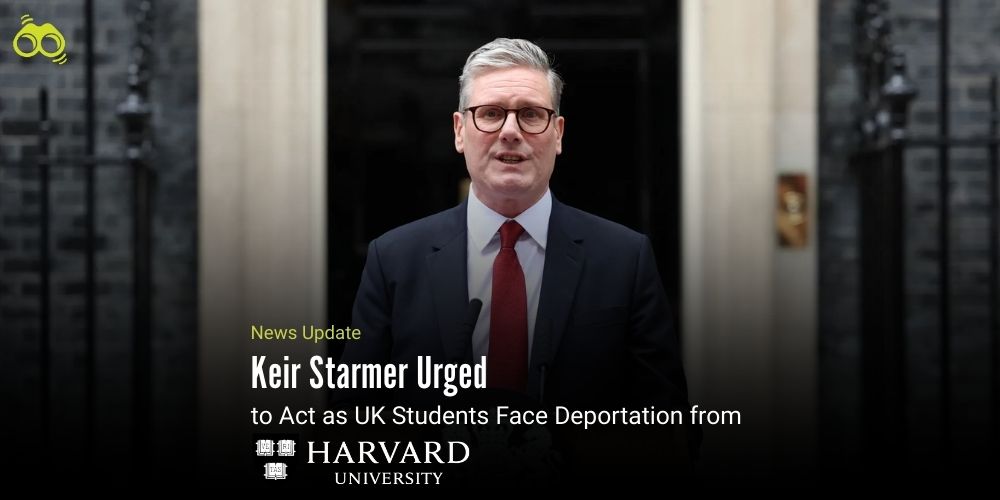Harvard University Faces Political Backlash Over Recruitment Ban
Hundreds of British Students at Risk Amid Trump Administration’s Decision
Harvard University has become the focal point of a political dispute following the Trump administration’s decision to revoke its ability to recruit international students. This controversial move, widely seen as an escalation of the former president’s ongoing tensions with the institution, has raised concerns about the future of hundreds of British students currently enrolled at the prestigious university. By effectively banning Harvard from enrolling overseas students, the White House’s decision has left many uncertain about their academic standing and visa status.
As a result, international students, including numerous UK nationals, now face the difficult choice of transferring to other institutions or losing their legal right to remain in the United States. The decision has drawn sharp criticism in the UK, with calls for Labour leader Keir Starmer and Britain’s ambassador to Washington, Lord Peter Mandelson, to intervene and protect British students from becoming collateral in US political conflicts. Former education secretary Nicky Morgan condemned the decision, describing it as “chilling” and warning of its broader implications. Harvard University, which has nearly 6,800 international students, over a quarter of its student body, has labelled the ban unlawful and retaliatory, arguing that it lacks a legal basis and stems from its public opposition to the Trump administration’s claims of “woke” influence in higher education.
The U.S. Department of Homeland Security justified the decision by accusing Harvard of fostering an unsafe campus, alleging that “anti-American, pro-terrorist agitators” had been permitted to target Jewish students. Additionally, the administration claimed that the university had cooperated with the Chinese Communist Party. These allegations have sparked further backlash, with critics arguing that the decision is politically motivated rather than grounded in legitimate security concerns.
Former Labour Secretary John Denham urged Prime Minister Keir Starmer and Lord Mandelson to intervene, describing the situation as deeply distressing for affected students and condemning it as an unjustified action by the US government. He called on the UK government to denounce the unfair treatment of students who have followed regulations, emphasising that young scholars aged 18 to 24 should not be used as pawns in political disputes.
Denham further recommended that Lord Mandelson, due to his strong connections in the White House, represent the UK in advocating for the students. Former education minister Robin Walker also criticised the ban, describing it as “very vindictive” and arguing that it would harm US interests while serving more as a political spectacle than a meaningful policy. This situation highlights the ongoing tensions between politics and education, demonstrating the far-reaching consequences of immigration decisions on international students.
Editor's Note:
The Trump administration’s decision to stop Harvard University from recruiting international students has caused worry among academics and politicians. This change puts hundreds of British students in a difficult position regarding their studies and visas. It also signals tougher immigration rules that could affect many students wanting to study in the US. This situation shows how higher education is becoming caught up in political disagreements. Political figures and university administrators have voiced strong opposition to the ban, but the primary worry centres on the impact on affected students. Prominent individuals such as Keir Starmer and Lord Peter Mandelson have urged measures to protect British students from unfair consequences due to political disagreements.
Skoobuzz reports that the UK government faces a significant task in balancing support for its students with maintaining positive relations with the US. The resolution of this matter could shape future regulations concerning international education and student mobility.














0 Comments (Please Login To Continue)